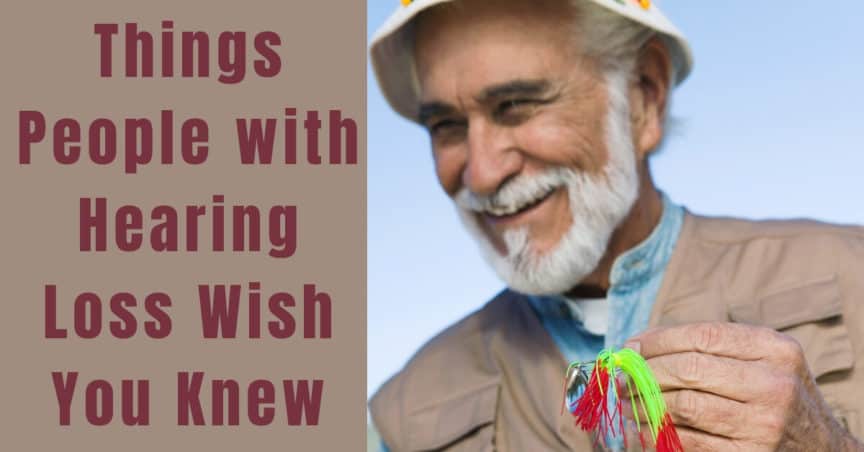People who are experiencing hearing loss are quite often navigating a barrage of new information and new experiences. This is because hearing loss not affects one’s ability to hear what is happening in the world around them, but because hearing loss can also affect things seemingly unrelated to hearing, such as connection with friends and loved ones to mental health issues.
People experiencing hearing loss can find that conversations are newly difficult to follow, and even activities that feel normal or routine, such as watching TV in one’s own home, can become difficult. Hearing loss can make it can feel undesirable if not impossible to be in crowded spaces, and having a one-on-one conversation with somebody can feel like an incredibly difficult task. These little things can really add up to make life feel hard, and to make people experiencing hearing loss feel alienated from their surroundings, friends, loved ones, and co-workers. All told, hearing loss deeply impacts people’s abilities to engage in and connect with the people, places, and experiences that are important to them.
Accommodating Those with Hearing Loss
If you know someone who is experiencing hearing loss, there are a few things that you can do to ensure that you are supporting that person’s hearing needs, to be sure, but their emotional needs as well. People experiencing hearing loss oftentimes already feel an acute sense of disconnection from their surroundings, and this feeling of disconnection can actually be exacerbated by friends and loved ones who do not understand what their hearing loss feels like or demands. The work that you can do to understand how hearing loss happens and what it feels like will not only help you to communicate with people for whom hearing loss but will help them feel truly heard themselves.
Some important things to remember:
- Hearing loss does not only affect older people. While hearing loss is often experienced by people who are over the age of 60—age-related hearing loss—it frequently results from exposure to temporary and prolonged loud noises, whether these occur in loud work environments or from using in-ear headphones for prolonged timespans. Understanding that the hearing loss is not abnormal, but can result from a wide variety of biological and environmental issues is an important step to understanding your loved one’s hearing needs.
- Hearing loss changes how people communicate. Hearing loss can make it difficult for one to distinguish amongst many different sounds. This makes it difficult to communicate in places such as restaurants where there is ambient noise or multiple conversations taking place. It is important to practice good communication habits in these settings: be conscious of whether the person you are talking to prefers to hear out of one ear over the other, establish eye contact when you want to communicate with someone experiencing hearing loss, and simply be sure you are speaking loud enough and clearly (but don’t shout!). If you want to have important or direct conversations with someone experiencing hearing loss, try to choose places with little noise.
- Be patient. It can take a long time for people to adjust to hearing loss because managing healthy hearing habits is physically and emotionally exhausting. You may feel frustrated while communicating with someone experiencing hearing loss, but they also feel frustrated as they lose their abilities to fully engage with people and their surroundings. It is important to create an open and caring environment for everyone to slowly adjust to changing hearing and communication needs.
- Hearing aids have come a long way. Hearing aids are no longer oversized devices that run out of batteries quickly, and produce high pitched noises. High-tech, low-impact hearing aids have flooded the market, from efficient behind-the-ear devices that provide hours of sharp hearing to nearly invisible in-ear-canal devices with Bluetooth connectivity. Taking time with your friend or loved to help them think through, select, and adjust to a new hearing aid—and doing so with patience and without judgement—will go a long way in ensuring their emotional well-being overall.
There are many things to consider when adjusting to your friend or loved one’s hearing loss, but the biggest thing to consider is their needs over yours. In times of great difficulty, patience, love, and communication can go a very long way to help someone with hearing loss to feel connected and engaged.
Visit Us at Ear-Tronics
Have you experienced changes in your hearing? Do you believe a loved one is struggling with hearing loss? There’s no reason to live with untreated hearing loss. It all begins with a simple, comprehensive hearing test. At Ear-Tronics, we provide hearing health services, from hearing tests to hearing aid fittings. Contact us today to learn more!

